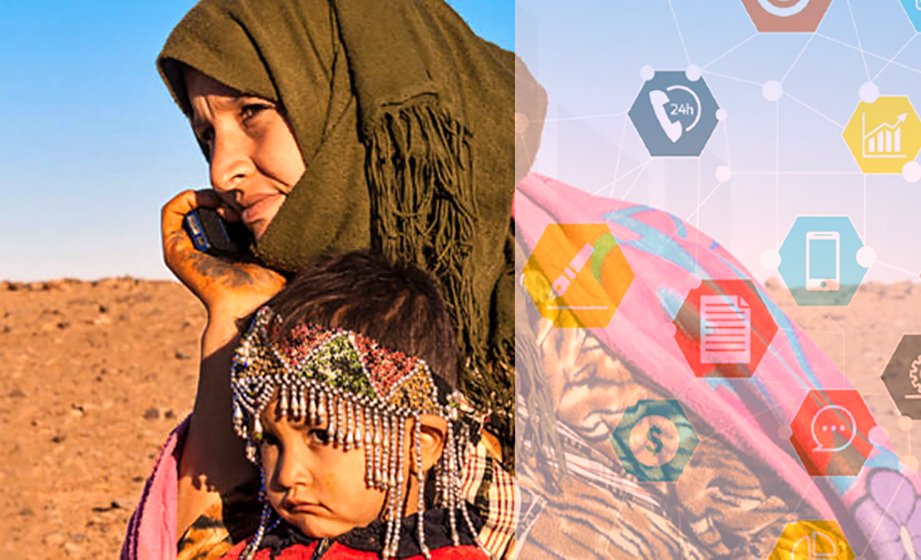Post written by Paula Newton and Maria Fonseca
Blockchain has the possibility to bring about tremendous change in society. Blockchain technologies could be beneficial for both the rich and the poor, and it can actually develop nations to progress. Vinay Gupta and Rob Knight, writing for the Harvard Business Review in 2017 explain how blockchain may enable exactly that through allowing “developing nations to leapfrog more-developed economies.”
Leapfrogging is a concept introduced by the autors, to describe the process of taking advantage of the lack of infrastructure to adopt highly advanced methods to get ahead. In fact this has already occurred with some technologies. An example is that of the use of 3G networks in Kenya and South Africa, and this has saved these countries from having to put down cables through which telecommunications should run. Instead, telecommunications are run largely through smartphones and 3G instead of cables, and desktop PCs.
Yet, the authors purport that there is more that can be leapfrogged, and it is not just physical infrastructure that can be surmounted in this way. They provide the example of Japan which leapfrogged using quality control techniques under the umbrella of Total Quality Management, as developed by W. Edwards Deming.
Specifically in Kenya and Tanzania, the M-Pesa mobile payment system is a primary example of leapfrogging. This allows people to bank using just their phones, in their national currency, and it has surpassed banking practices in developing nations. This development has provided a swathe of opportunities for people who may not have traditionally been able to access regular banking services, and it is believed that these types of services have been responsible for pulling almost 200,000 Kenyans out of poverty – according to research which received funding from the Bill and Melissa Gates Foundation.
These types of developments have led industry experts to believe that security provided by blockchain is one area in which developing economies have an opportunity to leapfrog. In fact, it is argued that this technology may be “vital” in allowing ordinary people to trade. Specifically, blockchain brings with it opportunities to fast track innovations in technology. Its decentralisation means that large infrastructure such as data centres becomes unimportant. Instead, developing countries could leverage blockchain to provide secure services, since blockchain is universal and not tied to one physical location.
Blockchain is also opined to be of considerable use to helping developing world governments with the digitisation of government activities and functions to bring about modernisation faster. Dubai, for example, is a leader in blockchain adoption, and developing nations could learn from this. For example, it is anticipated that by 2020 all government documents, namely in excess of 100 million per year could be moved onto blockchain by 2020. This is thought to have the benefit of tremendous cost savings, and there is much that developing nations could take from this. Such an approach could allow developing countries to step up their economic growth by delivering integrity in trade systems, and in particular with regard to exporting where information is needed about goods’ origin – such as in the case of coffee.
Blockchain is by its very nature open data and this provides developing country governments the chance to learn from and test new approaches for carrying out trade, and develop the best practices for doing so. Transaction costs would also be likely to reduce. That is the opinion of Hernando de Soto, an economist who has reviewed the potential for blockchain to bring about change in this regard. De Soto, is a prominent Peruvian economist and authority on blockchains and property asset titling, who recently received the 2017 Global Award for Entrepreneurial Research.
Hernando de Soto thinks that people in poverty have fewer opportunities to enter the formal economy due to poor record keeping systems in these countries and due to a lack of trust around transactions and providing data to people that may not deserve that trust. Further, he has argued that the main problem in many developing nations is not capital per se but a lack of property rights. Blockchain has the strong potential to change all of that and to include more people in the global economy, by providing people with opportunities for their financial inclusion.
There are reasonable incentives for developing nations to start considering the use of blockchain to improve their lot, allowing them to leapfrog former, more traditional technologies to succeed. It will be interesting to see in the years ahead if any of them do take the gauntlet and push ahead in this direction.
Article powered by Humaniq
Launched in 2016, Humaniq aims to provide mobile finance to the 2 billion unbanked population through its mobile app for good, that uses biometric authentication to replace traditional methods of ID and security. Humaniq’s open source stack and API will be available for startups and other businesses to build services on its core technology, making it easy to adapt their service and plug it into Humaniq’s network to reach a huge, untapped audience.

Paula Newton is a business writer, editor and management consultant with extensive experience writing and consulting for both start-ups and long established companies. She has ten years management and leadership experience gained at BSkyB in London and Viva Travel Guides in Quito, Ecuador, giving her a depth of insight into innovation in international business. With an MBA from the University of Hull and many years of experience running her own business consultancy, Paula’s background allows her to connect with a diverse range of clients, including cutting edge technology and web-based start-ups but also multinationals in need of assistance. Paula has played a defining role in shaping organizational strategy for a wide range of different organizations, including for-profit, NGOs and charities. Paula has also served on the Board of Directors for the South American Explorers Club in Quito, Ecuador.










